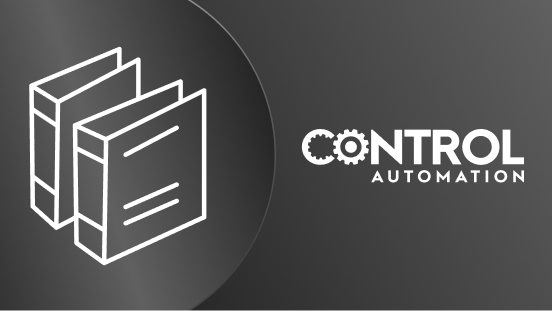
An extremely important topic in engineering is that of transfer functions. Simply defined, a transfer function…
Textbook

The vast majority of modern process transmitters (both analog and digital) come equipped with a feature known…
Textbook

Creative Commons Attribution 4.0 International Public License By exercising the Licensed Rights (defined…
Textbook

A whole class of problem-solving techniques focuses on altering the given problem into a simpler form that is…
Textbook

Phasors are to AC circuit quantities as polarity is to DC circuit quantities: a way to express the…
Textbook

RTDs are completely passive sensing elements, requiring the application of an externally-sourced electric…
Textbook

A powerful mathematical concept useful for analyzing practically any physical system – electrical…
Textbook

In reliability engineering, it is important to be able to quantity the reliability (or conversely, the…
Textbook

Constructing PID control systems using discrete components is a fairly simple method involving operational…
Textbook

“As to methods there may be a million and then some, but principles are few. The man who grasps…
Textbook

A sliding-stem valve body is one where the moving parts slide with a linear motion. Some examples of…
Textbook

At the next OSI Reference Model layer (layer 4) is a set of protocols specifying how reliable communication…
Textbook

An variable-area flowmeter is one where the fluid must pass through a restriction whose area increases with…
Textbook

Filled-bulb systems exploit the principle of fluid expansion to measure temperature. If a fluid is enclosed in…
Textbook

Weight-based level instruments sense process level in a vessel by directly measuring the weight of the vessel.…
Textbook

When control valves operate between fully open and fully shut, they serve much the same purpose in process…
Textbook

The simple PLC ladder diagram (LD) commands consist of contacts and coils, arranged in sequences that mimic…
Textbook

A limit switch detects the physical motion of an object by direct contact with that object. An example of a…
Textbook

Modern DC and AC motor drives provide features useful when using electric motors as final control elements.…
Textbook

Linearity of Measurement Instruments The purpose of calibration is to ensure the input and output of an…
Textbook

Certain types of nuclear radiation easily penetrates the walls of industrial vessels, but is attenuated by…
Textbook

A powerful mathematical concept useful for analyzing practically any physical system – electrical…
Textbook

An important design parameter of a control valve is the position it will “fail” to if it loses…
Textbook

Sensors used to measure vibration come in three basic types: displacement, velocity, and acceleration.…
Textbook

In contrast to quantitative tuning procedures where definite numerical values for P, I, and D controller…
Textbook

Like so many other industrial data networks, FOUNDATION Fieldbus is an “unswitched” or…
Textbook

When I began teaching full-time in 1998, most of what I thought I understood about good teaching was actually…
Textbook

A fluid is any substance having the ability to flow: to freely change shape and move under the influence of a…
Textbook

The dispersion of visible light into its constituent colors goes all the way back to the 17th century with…
Textbook

Lipták, Béla G. et al., Instrument Engineers’ Handbook – Process Measurement and Analysis Volume I,…
Textbook

AC induction motors are based on the principle of a rotating magnetic field produced by a set of stationary…
Textbook

Few areas of mathematics are as powerfully useful in describing and analyzing the physical world as calculus:…
Textbook

Many years ago, when I was first learning about electricity, I happened to discover a length of coaxial…
Textbook

As described earlier in this chapter, calibration refers to the adjustment of an instrument so its output…
Textbook

A proximity switch is one detecting the proximity (closeness) of some object. By definition, these switches…
Textbook

Perhaps the most confusing aspect of discrete sensors is the definition of a sensor’s normal status.…
Textbook

One very convenient feature of waves is that their properties are universal. Waves of water in the ocean,…
Textbook

A different strategy for controlling the flow of fluid is to insert a rotary element into the flow path.…
Textbook

So far we have just looked at instruments that sense, control, and influence process variables. Transmitters,…
Textbook

As discussed at the beginning of this chapter, instrumentation safety may be broadly divided into two…
Textbook

The simplest form of 4-20 mA current loop is the type used to represent the output of a process controller,…
Textbook

The purpose of a control valve actuator is to provide the motive force to operate a valve mechanism. Both…
Textbook

An variable-area flowmeter is one where the fluid must pass through a restriction whose area increases with…
Textbook

While 50 and 51 (instantaneous and time overcurrent) relay functions monitor line current magnitude and guard…
Textbook

In addition to Ohm’s Law, we have a set of rules describing how voltages, currents, and resistances…
Textbook

Visualizing the actions of P, I, and D tuning parameters using graphs is extremely useful in predicting the…
Textbook

These fortifications focus on human behavior rather than system design or component selection. In some ways…
Textbook

A fundamental principle in instrumentation system troubleshooting is that every instrument has at least one…
Textbook

Light has long been used as a long-range signaling medium. While communication by light through open air is…
Textbook
